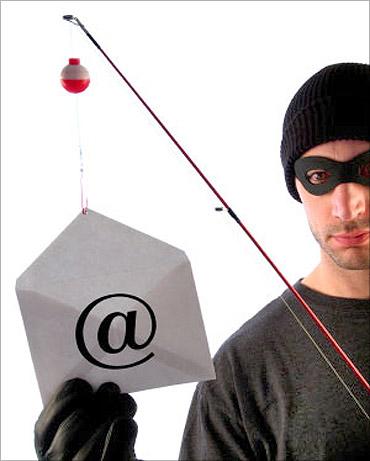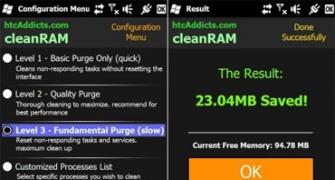 Your online habits single you out as a target!
Your online habits single you out as a target!
A study involving Indian-origin researchers has found that if you receive a lot of e-mail, habitually respond to a good portion of it, maintain a lot of online relationships and conduct a large number of transactions online, you are more susceptible to e-mail phishing expeditions than those who limit their online activity.
The study uses an integrated information-processing model to test individual differences in vulnerability to phishing.
E-mail "phishing" is a process that employs such techniques as using the names of credible businesses (American Express, eBay), government institutions (Internal Revenue Service, Department of Motor Vehicles), or current events (political donations, Beijing Olympic tickets, aiding Katrina victims) in conjunction with statements invoking fear, threat, excitement, or urgency, to persuade people to respond with personal and sensitive information like usernames, passwords and credit card details.
Phishing exploits what are generally accepted to be the poor current web security technologies, but Arun "Vish" Vishwanath, associate professor in the UB Department of Communication, College of Arts and Sciences says, "By way of prevention, we found that spam blockers are imperative to reduce the number of unnecessary e-mails individuals receive that could potentially clutter their information processing and judgment."
"At the other end," he says, "individuals need to be extra careful when utilizing a single e-mail account to respond to all their emails. An effective strategy is to use different e-mail accounts for different purposes. If one e-mail address is used solely for banking and another is used solely for personal communication with family and friends, it will increase your attention to the details of the e-mail and reduce the likelihood of chance deception because of clutter."
Vishwanath also advocates setting aside time to focus and respond to personal e-mails separately from work-related e-mails.
"Our findings suggest that habitual patterns of media use combined with high levels of e-mail load have a strong and significant influence on individuals' likelihood to be phished," Vishwanath said.
The study also showed that a person's competency with computing did not protect them from phishing scams, but their awareness about phishing in conjunction with healthy e-mail habits, helped them avoid online deception.
The study is forthcoming in the journal, Decision Support Systems and Electronic Commerce.









